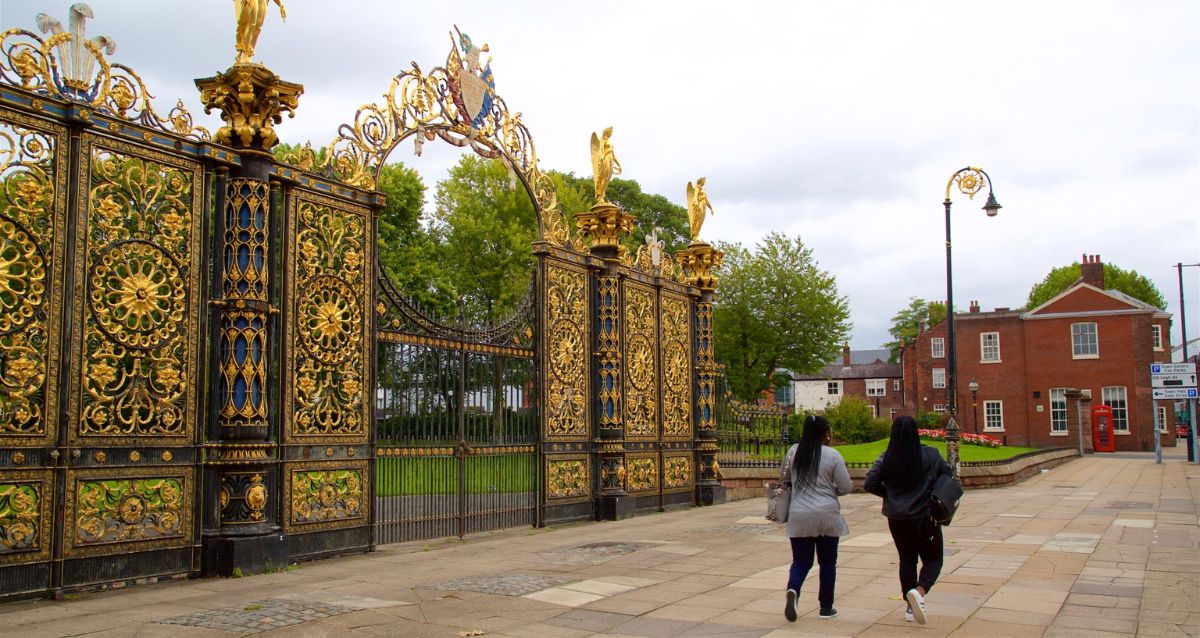Questions To Ask Yourself Before Investing In Property
Are You Ready To Invest In Property?
Before you can get into the nitty-gritty details of how and where to invest in property, you must first consider if you are ready to step into the world of property investment.
Property is a relatively unique asset, permitting investors to be as hands-on or hands-off as they wish to be. However, it will still undoubtedly require a large portion of your time, funds, and attention, especially in the early days. And even if you outsource much of the management, ultimately this is your property and your responsibility. There is plenty that can (and will) go wrong along the way, from repairs to troublesome tenants to void periods.
Ask yourself, is this a responsibility you want to take on?
Do You Have The Funds?
Whilst the amount of money required to invest in property will inevitably vary based on the type of property you hope to purchase, having a sufficient starting pot is essential to help you begin your property investment career.
We usually advise that £40,000 is a good starting point for residential property, although as property prices increase, this advice will change. But, considering that a 25% deposit can purchase most buy-to-let homes with a 25% deposit, £40,000 will afford you a city centre apartment with solid potential for capital growth.
Those with a more substantial pot (between £100,000 and £200,000) will have more options. For example, they may choose to purchase a property outright or put down deposits on a small portfolio of homes. Those with a larger-than-average investment budget may also opt for a more sophisticated investment strategy in alternative property markets, such as commercial property – an excellent way to diversify their portfolio.
However, this is not to say property investment is impossible with smaller budgets. There are many ways to navigate the sector, and working with a dedicated property investment company will enable you to explore all your options.
Do You Have The Time?
Even with the most hands-off approach to property investment, it will still take up a significant portion of your time.
Some investors prefer the property development route, which will demand all of your attention and realistically can rarely be worked around another full-time job. However, the lump sum financial payoffs can be huge.
At the opposite end of the spectrum is the traditional buy-to-let route. Here, many landlords employ a management agency to oversee their properties, meaning the investment will only take a tiny portion of their time.
But regardless of the investment strategy you choose, property will require your time in a way that other assets, such as stocks, do not. You need to be aware of this, it’s unwise to assume that the operational aspect of buying and owning property will be completely smooth sailing.
Do You Have The Skills?
No qualification, course or accreditation will immediately make you a great property investor. However, many personal skills and attributes are essential to succeeding in the sector.
Firstly, you must have to ability to think objectively. Unfortunately, many property investors become too emotionally attached to the homes they are contemplating, meaning they cannot make smart business moves. Communication skills are vital, too, as you will regularly deal with developers, contractors and tenants.
Additionally, a genuine passion and interest in the industry are crucial, as property can sometimes become an all-encompassing activity. Many investors find their excitement and confidence grow with every business decision, strengthening their enthusiasm for property over the years.
Why Choose Property?
The next step is to ensure that property is a suitable asset class for you.
There are many options for those with a sizeable investment pot, including but not limited to property, stocks, cryptocurrency and index funds.
So why choose property?
Security
Of course, it would be unwise to describe any investment as definitively ‘secure’. All markets are fluid and occasionally volatile, yet the UK property market continues to return excellent results over the long term.
This is because the demand for private rented housing in the UK is enormous. In 2020, the number of privately rented homes in the UK hit 4.44 million. Yet, there is still a considerable housing shortage, with the government estimating over 300,000 homes need to be built yearly to bridge the gap between supply and demand.
The acquisition of first-time mortgages is now notoriously tricky, meaning many young professionals must turn towards private rented accommodation over ownership.
The average house price has steadily climbed over the past 30 years, so when the time comes to sell your property or release equity from it, the value increase is often significant.
Investors can make their assets more ‘secure’ by opting for traditional buy-to-let in well-performing areas. Conversely, those with a high-risk appetite might be drawn to buy-to-sell (property flipping), which is less secure but can offer juicy short-term results, with investors expecting substantial returns within 6-18 months.
Leverage
One of the greatest draws to property investment is that the individual can secure leverage in the form of a mortgage.
Whilst a £200,000 investment in stocks might be out of your remit at this current time, a £200,000 investment in property might not.
A 25% deposit (plus stamp duty and legal fees) will allow you to purchase a home of this value and benefit from monthly rental income and capital appreciation.
Flexibility
Many investors are drawn to property due to the flexibility it offers.
It allows you to be as hands-on or as hands-off as you wish.
The buy-to-let landlord who wants to generate an entirely passive income is at one end of the scale. Investing in an off-plan property built to an excellent finish minimises the risk of any issues arising with the home.
Once the home is completed, the investor can then instruct a management agency to oversee the property. These agents will find and vet tenants, deal with the legal paperwork and be the first port of call for any queries. Meaning, as the landlord, you will only usually be contacted in cases of emergency.
Conversely, at the other end of the spectrum, we have the property developer. A property developer is someone who builds a home from the ground up, transforming a piece of land into a home with immense value.
Property development is a very hands-on investment style and is generally not possible alongside another full-time career. However, a joint venture model can allow those with stricter time constraints to balance the demands of a full-time job alongside a development project by sharing the workload.
Be warned, though, developers tend to have extensive experience in the field, as well as a network of contacts.

Investing In Property
Okay, so you’ve answered all of the pre-investment questions, compared property with other investment assets, and you’re still convinced property is the right choice for you. So, what next?
Well, first, welcome to the world of property investment. The next step is to decide what type of investor you want to be.
What Types Of Property Investments Are There?
Investing your money in the property market can take various forms. In this section, we’ll explore some of the most common.
Residential Buy-To-Let Property
Purchasing residential property as a buy-to-let has become the most common choice for investors.
It is arguably the most straightforward option, making it ideal for those starting their property journey.
With a residential buy-to-let, a landlord purchases a home to be let to tenants. The tenants then pay rental costs to live in the property. The rent should cover any expenses, like mortgage payments, repairs, or insurance, and leave the investor with some additional profit.
As such, the landlord then benefits from monthly rental income and long-term capital appreciation (i.e. growth in property value).
This is considered one of the ‘safest’ property investing methods, with tenants usually signing a 12-month tenancy agreement before moving into the home. Some landlords choose to work with property management agents for a more hands-off investment, whereas others prefer to maximise their profits and deal with the tenants personally.
There are also more advanced buy-to-let strategies, such as Serviced Accommodation, which can be an excellent way to benefit from the residential market whilst driving up rental yields.
Commercial Buy-To-Let
Commercial buy-to-let works similarly to residential but, instead, focuses on renting to businesses rather than people.
Commercial property takes many forms, with office and studio space being the most common.
Landlords often choose commercial property as tenants tend to take significantly longer leases. Therefore, once an occupant is acquired, landlords can rest assured their income is secure for the following 24 months.
However, many investors discover that mortgages or alternative funding can be more challenging to secure for commercial properties. Additionally, obtaining great tenants can take substantially longer than residential homes, and investors often find that the capital appreciation is typically less aggressive than in the residential sector.
Purpose-Built Student Accommodation
Student properties offer a great opportunity for investors. With over two million individuals enrolled in universities across the UK, the demand for this asset class is astronomical.
The requirements have evolved over recent years, with students now willing to pay more for high-quality accommodation. The UK also welcomes nearly half a million overseas students each year, demanding excellent, centrally located housing.
Student lets are favourable amongst investors as they are typically much less expensive to purchase than standard rentals. This lower price, combined with the high demand, leads to robust rental yields on this asset type.
Purpose-built student accommodation allows investors to secure assured rental periods, higher-than-average yields, and attractive tax exemptions.
Houses In Multiple Occupation (HMO)
HMOs are rental properties where every bedroom is let separately.
They can be highly lucrative for investors, typically generating significantly higher rental yields than standard buy-to-let properties.
They are prevalent in London, with the rental market outpricing many young professionals. However, HMOs are not purely in the capital. They are also popular in cities such as Liverpool, Manchester and Sheffield, with tenants opting for this way of living for various reasons.
However, there are many logistical issues associated with HMOs.
Firstly, it can be challenging to secure a mortgage against the property, as lenders treat these homes differently from standard buy-to-lets. Additionally, many other regulations are associated with HMOs, mainly linked to health and safety. Moreover, these rental properties can be much more time-consuming due to a higher turnover of tenants.
Finally, those interested in HMOs should note that the landlord covers the costs of utility bills, so council tax, electricity and water should all be factored into the monthly budgets for the investment.
Residential Buy-To-Sell (Property Flipping)
As the name suggests, residential buy-to-sell is where an investor purchases a home, improves the property and sells within a short timeframe.
This is an excellent option for those with knowledge and expertise in the home renovation sector or close connections with those who do.
The buy-to-sell route requires an investor to be very hands-on, making decisions and being present throughout the process.
Investors considering the buy-to-sell route should be aware that market dips are always a possibility. Individuals sometimes have to hold onto the property for slightly longer than they initially imagined or risk making a loss on the investment.
Tax Considerations
We briefly discussed the tax benefits of company ownership above, so this is a good opportunity to delve further into the topic, as ensuring you’re paying the correct level of tax can cause a massive headache for new landlords.
Stamp Duty Land Tax (SDLT)
The first tax that springs to mind when most consider buying a property in the UK is Stamp Duty Land Tax (commonly shortened to stamp duty or SDLT).
The stamp duty rules have changed significantly following the mini-budget announcement in September 2022. As a result, homebuyers have greater flexibility and thresholds to play with.
The SDLT bands are as follows:
- 0%:
- For first time buyers only: £0 – £425,000
- For others: £0 – £250,000
- 5%: £250,001 – £925,000
- 10%: £925,001 – £1,500,000
- 12%: £1,500,001 and over
Please be aware that these figures relate to England and vary slightly when purchasing in Scotland or Wales.
Also, these rates only apply to people buying a primary residence. An extra 3% surcharge is added to each band for those buying a secondary residence or investment property.
There are various ways to pay stamp duty, and some lenders are happy to add this tax to the mortgage balance to be paid alongside your monthly instalments.
Income Tax
Income tax is the tax we all pay on our earnings, regardless of whether we are paid by an employer or are self-employed.
The amount of income tax you pay on your rental property will depend entirely on the profits you are generating and your circumstances. Therefore, it is always best to speak with an accountant who will advise on the records you need to keep and the amounts you should be paying.
Capital Gains Tax (CGT)
Capital gains tax is applicable when you sell an asset for more than you paid for it, i.e. a tax on the gain you made.
When you come to sell your property, the tax will be payable on the profits you have generated. This will be a serious consideration for those hoping to liquidate their assets in retirement.
The percentage of CGT depends on the profit generated from the property. It is also worth noting that some investment classes (such as Purpose-Built Student Accommodation) are exempt.
Corporation Tax
If you buy your property through a limited company, you’ll pay corporation tax on the profits. Corporation tax is currently 19% in the UK.
When you extract profits from the company, either through a salary or dividends, you’ll be subject to further taxes.
Professional Tax Advice
Whether you own one property or ten, we would always advise that you engage an accountant to ensure your taxes are all in order.
Working with an accountant can save you a significant amount of money, as they will be able to provide you with the most cost-effective solutions to structure your business.
Tax is often an afterthought for many landlords but can become a nightmare if left to fester in the background for too long.
Finding A Property
Naturally, at some point in your journey, you’ll need to start searching the market for a suitable property. So, what do you need to consider?
Location
Once you have decided on the asset class that suits your taste, you must settle on a location.
Working with a dedicated property investment company removes the limitations of this second home being nearby. Many investors purchase properties throughout the country and across the globe without ever even visiting the home.
Your goals, chosen asset class, and risk appetite will ultimately determine the location you choose.
For example, those with a high budget but a low appetite for risk may choose a buy-to-let in London. Whilst the initial outlay is high, the demand for private rented accommodation in the capital is astronomical.
Conversely, those with a lower budget but a larger risk appetite may choose a buy-to-sell in a less expensive northern city, such as Sheffield or Leeds. This will then generate a lump sum profit that can be reinvested into further developments.
Our top tips for choosing the ideal rental location are:
- Choose a city receiving public and private investment and plenty of scope for regeneration. This means new businesses and occupants will be drawn to the town, keeping the demand for housing high. Manchester and Liverpool are prime examples.
- Consider your target market. Two and three-bedroom properties with gardens will attract families, so ensuring great schools are nearby is a must. Meanwhile, city-centre apartments will attract single professionals, where on-site amenities can boost rental demand and rates.
- If in doubt, choose a university city. Opting for a city like Manchester or Birmingham with a bustling student population is a great way to secure your investment. The demand for student properties will be huge, as well as high-quality accommodation for new graduates.





